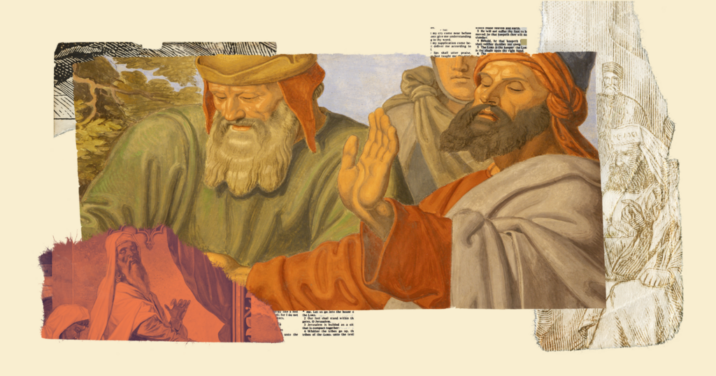Matthew 15 begins with the Pharisees challenging Jesus over the behavior of the disciples. Throughout Matthew’s Gospel, the Pharisees emerge as Jesus’s chief opposition. They view themselves as the chief interpreters of the law; Jesus’s teachings challenge this claim, leading to continuous clashes between the Pharisees and Jesus. These public clashes seek to determine who is honorable and who is shameful in the court of public opinion.
Honor/Shame
The Lexham Bible Dictionary notes that honor and shame were core cultural values in the biblical world, values which fail to translate well into the modern West. Those found shameful by the community would experience social rejection, ridicule, and dishonor.1 The goal of an individual in an honor/shame context was to win the approval of the court of public opinion and move up the honor ladder, and climbing this ladder very often meant stepping on some other group or individual through public shaming.
So far in Matthew’s Gospel, Jesus has defeated the Pharisees and opened them up to public shame. Now, however, Jesus faces a direct attack from elite Pharisees hailing from Jerusalem, setting the stage for a winner-take-all showdown. Whoever wins will be declared honorable—and the rightful interpreter of the law; whoever loses will suffer a diminished status before the community—and will lose their authority to interpret the law.
The Pharisees’ first gambit is to accuse the disciples of breaking with the traditions of the elders by not washing their hands before they eat. In response, Jesus raises a series of questions of his own, all focusing on the failure of their traditions to uphold the law. Jesus’s response culminates with his calling the Pharisees hypocrites and quoting Isaiah 29:13:
The Pharisees worship me in vain, teaching mere human commands as doctrines.
It is clear from the dialogue that the Pharisees have lost and are now faced with a choice. They can challenge Jesus’s conclusions and risk even more of their honor, or they can stay silent. They choose to stay silent, disappearing into the background.
A contrast
In contrast to the Pharisees, Matthew 15 introduces a Canaanite woman who is seeking healing for her daughter. This outsider calls out to Jesus using his messianic titles, but she is met with a challenge from Jesus. He tells her it isn’t right to take the children’s bread and throw it to the dogs (v. 26). This woman is not an Israelite, in other words, and she has no standing before the Jewish Messiah.
Yet she risks what little honor she has by raising her voice back at Jesus, an action that leads to Jesus’s warm commendation of her great faith.
A voice
The Pharisees went silent when challenged by Jesus. The Canaanite woman, however, was found honorable through her voice.
The church today should behave like this woman, risking our own honor to receive healing and forgiveness. The church, too, should act like Jesus, making room for the “Canaanites” who have demonstrated great faith in our midst.
David Seal, “Shame,” in John D. Barry et al., eds., Lexham Bible Dictionary (Bellingham, WA: Lexham Press, 2016).
***
This article was originally published in the March/April 2022 issue of Bible Study Magazine. Slight adjustments, such as title and subheadings, may be the addition of an editor.
Related Articles
- What Does ‘Binding and Loosing’ Mean in Matthew 16:19?
- How to Quickly Spot Differences in Gospel Accounts
- How to Deal with Inspired Ambiguities in the New Testament
Related Resources
Pointing to the Pasturelands: Reflections on Evangelicalism, Doctrine, & Culture
Regular price: $16.99







